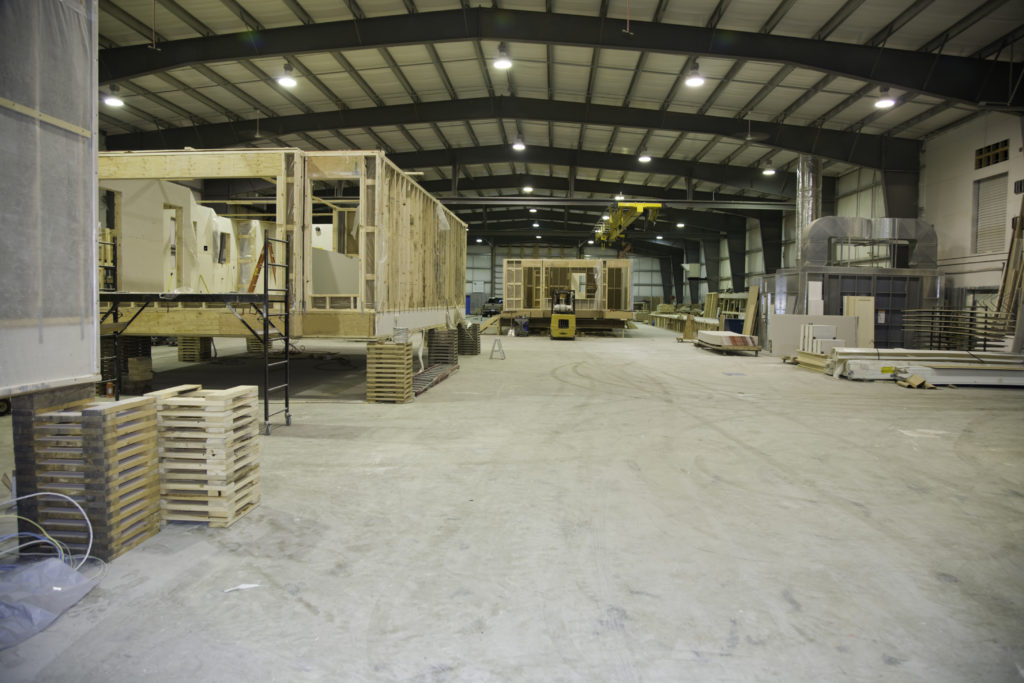If you spend anytime at all in the residential real estate world, or know anyone who does, you’ve no doubt heard of the prefab revolution. In fact, there’s a saying that’s going round in residential real estate that your next project won’t be built — it will be manufactured. New advances in building technology and material are helping today’s manufactured or modular houses shake the negative stereotypes and connotations of the prefab homes fom days gone by. But could this revolution ever make it way to commercial real estate? Some insiders say yes.
Some say the notion is unlikely, but the eco-friendliness and the efficiency of modern modular construction are both reaching all-time highs, and manufacturers of these modular structures have already built some pretty impressive buildings all over the world.
As such, there is definitely some sound evidence that modular construction is the way to go for all new construction projects, with the average consumer now not being able to tell the difference in traditionally constructed and prefabricated buildings once complete. It’s time to put the negative stereotypes behind us and see all of the ways modular construction can benefit those in commercial real estate, including owners and managers of commercial space.
Drivers Behind the Prefab Revolution
There are a number of factors that have contributed to the sharp increase in the modular construction, as of late. While modular construction has been around for ages, we have never seen such a sharp increase in popularity and demand as we have recently. So what could be the cause? Why are we seeing this demand now?
While there are plenty of theories, most industry experts agree that the push can be contributed to the following factors:
- The Technological Revolution – Increase use of digital modeling, combined with new and innovative manufacturing techniques have done wonders to broaden the eyesight of people. As a result, we are using more AI and robotics in manufacturing everything, from furniture to smart cars. Naturally, this trend is making its way into commercial construction, and it’s a nearly perfect fit.
- A Decrease in a Skilled Workforce – Modular construction gives relief to labor issues, a desperately needed answer after the nation’s recession. As the recession hit, thousands of construction workers suddenly found themselves out of jobs. And, now that the economy and housing market are recovering, many of these workers have either moved into a different field or retired — leaving a definite shortage of skilled workers. Automating the construction process helps relieve some of this strain.
- The Perfect Storm for Growth – The current combination of technological possibilities, undeniable shifts in the American economy, a smaller construction-skilled workforce, and the increase in the cost of skilled labor can be best described as a perfect storm effecting change in the commercial construction industry. And, when you add in higher quality standards and client demands for faster turnarounds and a bigger ROI, it’s no wonder that modular construction seems to be the answer.
Benefits and Advantages of Modular Commercial Construction
So, then exactly what are the benefits of modular construction in commercial real estate? Let’s look a little more closely.
- Cost Savings – Modular construction is incredibly cost efficient and boasts much less waste than traditional on-site construction — and these savings get passed on to the buyer. Additionally, fewer workers are needed to complete the project and the overall timeline is shorter, meaning a faster ROI.
- Quality Control – Modular or manufactured construction projects are constructed in a carefully controlled factory environment. They are both designed and built to the same standards as traditional on-site style builds and are extensively tested in the factory to make sure quality standards are met before the structure leaves the factory.
- Site Impact – There is less impact on the construction site, which means less restoration once the project is completed — saving both time and money. Additionally, modular construction ensures that minimal deliveries and movement are needed to deliver materials to the construction site.
- Sustainability and Eco-friendliness – Another big benefit of modular construction is that these projects are typically more eco-friendly and sustainable. Modular construction boasts a minimal waste of materials, as well as wood (a renewable resource) as its main structural component, making these projects much more eco-conscious.






